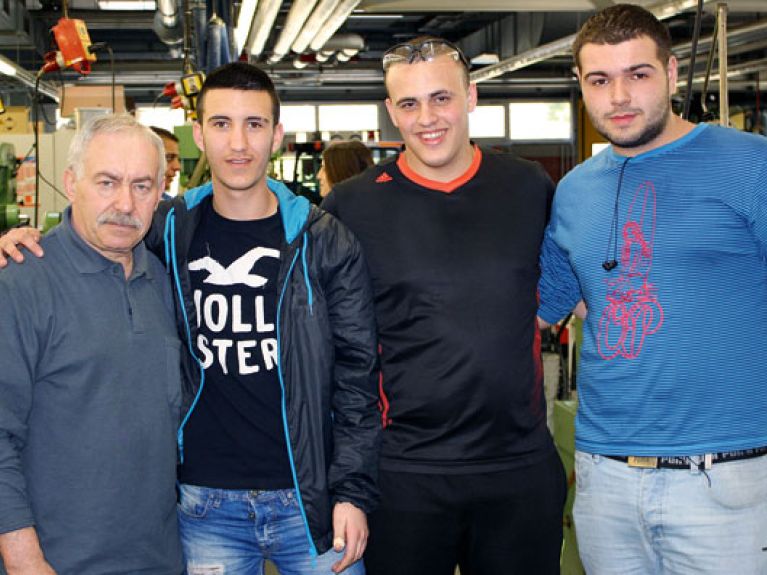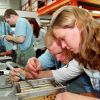Promoting traineeship exchanges
Germany and Israel are close partners in vocational training. Trainee exchange is the most recent addition to their programme

For 45 years now Israel’s Ministry of Industry, Trade and Labour (MOITAL) and Germany’s Federal Ministry for Education and Research (BMBF) have worked together in the field of vocational training. In addition to promoting exchange among experts, research projects and political discussion, the partnership is now spotlighting support for young people starting out on their professional careers: 2012 saw the launch of the “German-Israeli Programme for Cooperation in Vocational Training”, which promotes the exchange between German and Israeli trainees.
“14 young people from each of the two countries travel to their partner country, where for three weeks they will do specialist training and activities in companies and other institutions tailored to the needs of their future careers,” explains Dr. Monique Nijsten, who is in charge of the Israel Programme of the National Agency for Education for Europe (NA) at the Federal Institute of Vocational Training (BIBB). “The idea here is not only for those youngsters to get practical experience, but also to be able to immerse themselves in a foreign culture. Meaning that intercultural aspects are almost as important as professional skills.” In March 2014, 14 Israeli trainees in the metal and electrical industries (aged 16–18) spent three weeks in Cologne to get a taste of the German vocational training system.
Hemdat Sagi, Commercial Attaché of the Israeli Embassy in Berlin, visited the young people during the workshops: “The German-Israeli exchange in vocational training is one of the strongest pillars of collaboration between our two countries,” she says with conviction. And there was plenty of fun during the exchange, she continues, or to put it more pc: ‘intercultural experiences’. In addition to a tour of Cologne the trainees went on a boat trip on the River Rhine, explored the nearby European City of Maastricht in the Netherlands, visited the House of History in Bonn, and watched a football match in Cologne. And of course they met up with their German counterparts, whose return visit took place in May.
“In Israel there is great demand for qualified staff and better training. Germany’s dual education system works very well and is an interesting model,” says Monique Nijsten. The reason: In Germany, young professionals get hands-on experience in their jobs and get the necessary theoretical skills at vocational colleges. It’s a solution that appeals to many countries – and helps combat youth unemployment. “When it comes to inclusion, however, the Germans can learn a lot from the Israelis,” Monique Nijsten notes. “In Israel integrating different social and professional backgrounds is part of everyday life.”
In September the NA will be hosting a German-Israeli workshop on “permeability between vocational training and higher education” in conjunction with the BIBB Congress 2014 in Berlin. Participants will discuss practical solutions developed in the two countries in an move to make higher education more accessible to young professionals. “We can definitely say that both countries benefit from this vocational and educational partnership of many years,” Monique Nijsten says, summarizing their efforts. “The two partners each get a chance to introduce their strengths and expertise and share the other’s experiences.” ▪

